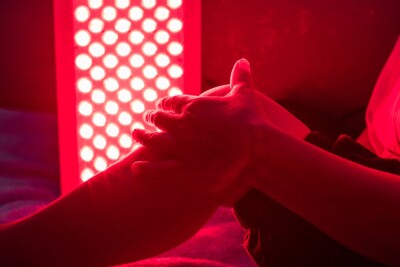Insomnia, disrupted sleep, burnout linked to higher risk of severe COVID-19
Insomnia, disrupted sleep, and daily burnout are linked to a heightened risk of not only becoming infected with the novel coronavirus (COVID-19), but also having more severe disease and a longer recovery period, according to a new international study of healthcare workers published in the journal BMJ Nutrition Prevention & Health.
For the study, researchers drew on the responses to an online survey for healthcare workers repeatedly exposed to patients with COVID-19 infection, such as those working in emergency or intensive care, and so at heightened risk of becoming infected themselves. The survey ran from July 17, 2020 to September 25, 2020 and was open to healthcare workers in the United States, France, Germany, Italy, Spain, and the United Kingdom.
Respondents provided personal details on lifestyle, health, and use of prescription medications and dietary supplements, as well as information on the amount of sleep they got at night and in daytime naps over the preceding year; any sleep problems; burnout from work; and workplace exposure to COVID-19 infection.
More than 2,800 healthcare workers responded, 568 of whom had COVID-19, ascertained either by self-reported diagnostic symptoms or a positive swab test result. Infection severity was defined as very mild, mild, moderate, severe, and critical.
The amount of reported nightly sleep averaged less than seven hours, but more than six hours. The study found that for every one-hour increase in the amount of time spent asleep at night was associated with 12 percent lower odds of becoming infected with COVID-19, according to the study. Additionally, an extra hour acquired in daytime napping was associated with 6 percent higher odds, although this association varied by country.
Around 24 percent of those with COVID-19 reported difficulties sleeping at night compared with around 21 percent of those without the infection. Further, 5 percent of those with COVID-19 said they had three or more sleep problems, including difficulties falling asleep, staying asleep, or needing to use sleeping pills on three or more nights of the week, compared with 3 percent of those without the infection.
When compared with those who had no sleep problems, those with three had 88 percent greater odds of COVID-19 infection. Proportionally more of those with COVID-19 reported daily burnout than did those without the infection, 5.5 percent versus 3 percent. When compared with those who didn't report any burnout, those for whom this was a daily occurrence were more than twice as likely to have COVID-19. Similarly, these respondents were also around three times as likely to say that their infection was severe and that they needed a longer recovery period. These findings held true, irrespective of the frequency of COVID-19 workplace exposure, the researchers said.
This is an observational study, and as such, can't establish cause. The researchers acknowledged several limitations to their study. These include subjective assessment of exposure levels, sleep issues, and infection severity, all of which may have been incorrectly remembered. Additionally, the sample included only cases of very mild to moderately severe COVID-19.
"The mechanism underlying these associations remains unclear,” the researchers said in the study, “but it has been hypothesized that lack of sleep and sleep disorders may adversely influence the immune system by increasing proinflammatory cytokines and histamines.”
Previous studies linking burnout to a heightened risk of colds and flu as well as long term conditions, such as diabetes, cardiovascular disease, musculoskeletal disease and death from all causes, the researchers said.
"We found that lack of sleep at night, severe sleep problems and high level of burnout may be risk factors for COVID-19 in frontline [healthcare workers],” the researchers said in a statement. “Our results highlight the importance of healthcare professionals' wellbeing during the pandemic."
Editor's note: Click here for more information and ongoing COVID-19 updates for integrative healthcare professionals.




















SHARE